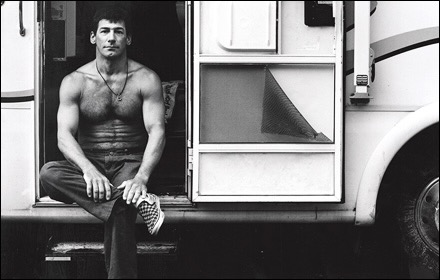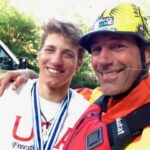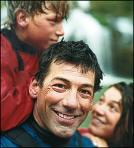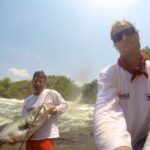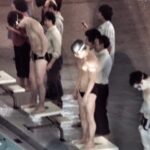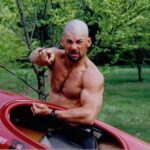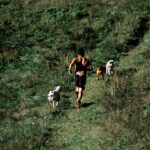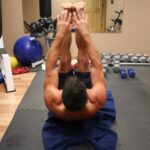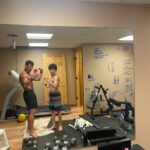“Longevity, EJ logistical Plan for Achieving it”— Longevity is defined as having a mind and body that is capable of, and wants to perform at high levels at advancing ages.

I am still very young, in my opinion, or, in my specific case, almost exactly middle-aged. I expect to live to be 123. Why 123? It is a goal, only because the world’s record is 122 and 164 days, and it seems like a cool thing to shoot for, for a variety of reasons. To be honest, I don’t think about it much and just had to Google the oldest person. Prior to writing this, my goal was 120, but I might as well add a few years to it and go for the record.
OK, if you are already turned off my goal and the concept that I would suggest such a thing and how it is unreasonable and would make everything I write below, likely just as ridiculous, consider the following, it just might keep you reading.
Everyone gets something close to what they expect unless something like cancer, heart attack, or some other major illness hits them that they were not counting on. If your parents lived to be in their 80’s, you imagine you could too. If they died early in their 60s or so, you might feel lucky to make it to 80. You may also see that the quality of life of someone who is in the last year or two of their lives may be so poor compared to what they had before, that you wouldn’t want to live through that and can’t imagine wanting to live to be 100 as it is a long time to have a life where you are just hanging on. All of this is true, BUT, all of this is relative to your physical and mental condition, anytime during your life. A healthy mind and physically capable body is mostly up to you, not a function of age.
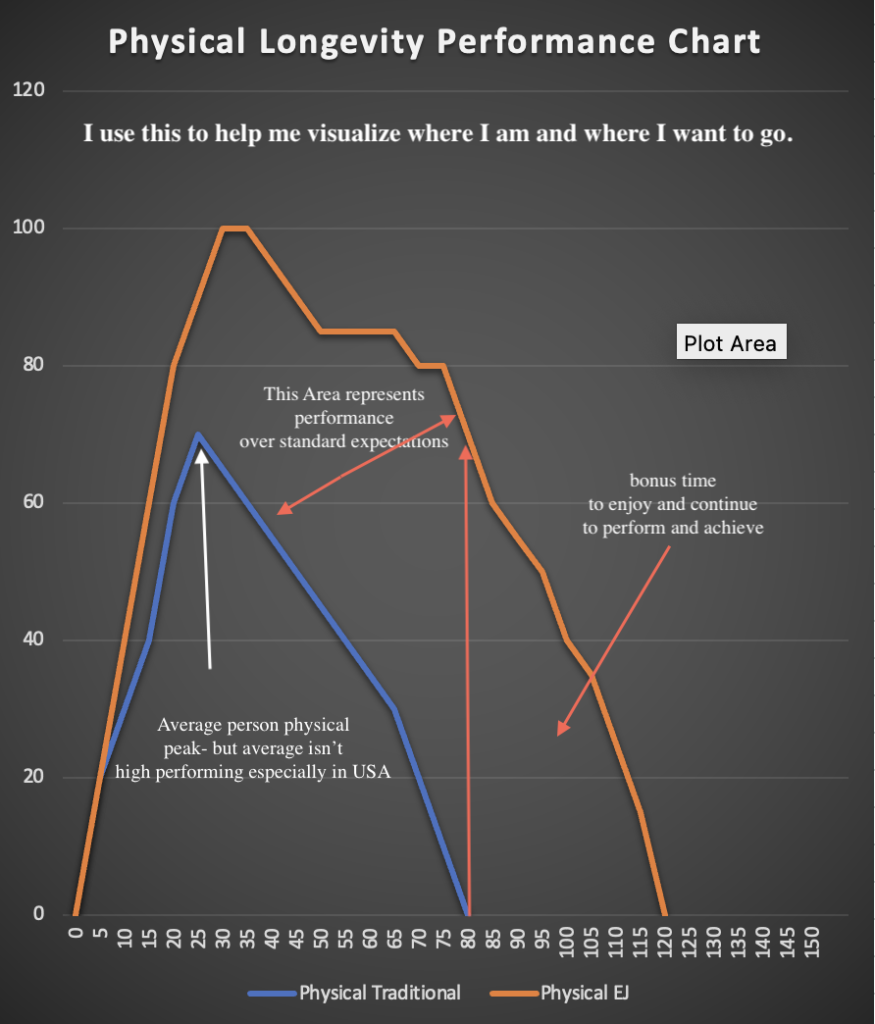
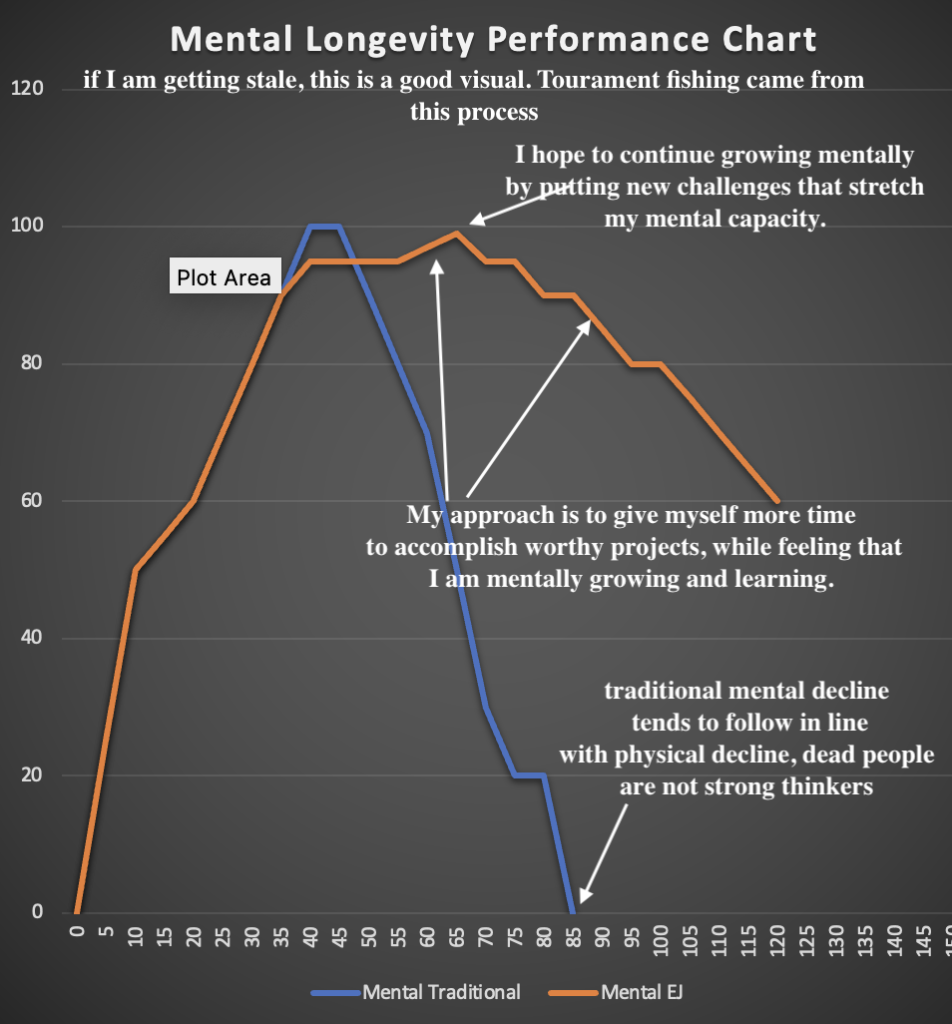
Disclaimer 1- I don’t differentiate between anyone of any race, or gender, or if you have physical or mental challenges/handicaps. In other words, I don’t handicap you, and it is up to you to not handicap yourself. If you were in an accident and were paralyzed from the waist down and didn’t have access to your legs, you could say that your physical abilities are no longer yours to control. I approach this from the perspective of, what are your physical and mental abilities relative to the body and mind you have, not from the pure performance point of view. For example, if you are in a wheelchair, can you do pull-ups? Can you walk on your hands? Have you ever tried to make your upper body compensate for your lower body’s challenges, or have you resigned to allow your upper body to get weak and be a liability as well?

backyard gym
Now the meat and potatoes of the “EJ Theory” that I live and breathe.
Longevity is about being strong. Strong mind and body. Strength comes from daily use, daily challenge, and being careful not to break your body or mind by accident or poor usage of either. If I stopped writing at that sentence, you would have all of the information I have, you have the secret to longevity. However, we won’t stop there, because our world is filled with “information”, Dr.’s recommendations, societal norms, definitions, expectations, etc. are so off base in most cases that what daily challenge means, what diet means, what exercise means, and what mental challenge is or could be are unknowns for most people, due to hive mentality and being unable to see the forest through trees.
- Priorities
- Rewards of keeping priorities
- do what is needed wherever you are
- never too old to climb trees for fun
- the well is better water than the bottle
- “The dude in the red outfit”
- Be part of a team.
- crocodiles, or class 5- why not both?
- Raising kids and intentionally trying to keep up with them is a great way to stay young
- following is OK sometimes.
- push yourself
- Many speedos only so many days to wear them
- sometimes it is your turn to step up.
- AT Paddles Tank Top- favorite shirt from Dan Gavere
- even fishing can be class 5
- go fast
Disclaimer #2- I am not a doctor (which means there are things I didn’t learn in medical school but is also frees me from the knowledge that is taught that may not be good information today- remember that part of learning to be a doctor at one point you had to learn how to do “bloodletting” where you would bleed a patient to let the “bad blood out” if they were really sick. George Washington, a very important patient, had access to the smartest, most educated doctors in the USA, and they did that process on him. From my perspective, we are still “Drilling holes in people’s sculls, and bloodletting” in the name of the most advanced medicine, using techniques, medicines, etc, that will no longer be used because they are simply bad business. With that said, of course, there are a ton of great techniques and medicines, and much of the medical world’s information is on point for fixing specific health issues. This essay is on how to create health, create an abundance of physical and mental capacity and resilience. The final point is related to getting your information from a doctor or not. I believe you should always be your best doctor. Self-diagnosis is where you should start 100% of the time. What do I mean by that? If you have an issue where you need a doctor, you should not walk into the doctor’s office without already knowing what is wrong, whenever possible. Not taking personal responsibility for your own health and assuming that the doctor you are about to see, “A” will find the issue, and “B” will have a solution that is the best for you can lead to a bad outcome. When you believe a doctor’s diagnosis at face value, and deal with the consequences of their diagnosis and expected recovery levels, physical issues you’ll be dealing with, etc.., you just put yourself in the middle of the spectrum of performance levels that you can expect. I’ll give one example, in the physical injury category, and could give many more in many categories. I was at a training camp for the 1992 Olympics in Spain in November of 91 and did an upstream gate that severely hurt my left shoulder on my final day, final workout, at 6:30 am on a cold sub-freezing morning due to poor warm-up and being overly tired physically. I couldn’t lift my arm up to eat or anything for weeks. By the beginning of February, nothing was working, and I still couldn’t train and USA Team trials were April. I went to 4-5 different specialists who provided a variety of diagnoses and treatments. 3 of them said I have chronic tendonitis in my biceps tendon. 2 of them said I needed surgery to fix it, but there was nothing other than the PT that I was doing that could help. Finally, I met Dr. Schaefer from Georgetown University Hospital who said, “You have shoulder instability from stretching/tearing your tendons and the normal PT (rotator cuff exercises) won’t fix it. “You need to do Bench, chin-ups, and Dips to pack the bigger muscles around the shoulder to hold it in place. He told me how to do those exercises to not hurt the shoulder. I began and in 3 weeks I was kayaking again, and by April, I made the USA Team for the Olympics. My point of this story? I listen to people talk, almost daily, spewing out facts about their physical condition, as diagnosed by a doctor, their PT friend, etc. that has them disabled and takes the repairing or workaround to fix their body out of their control, and they resign themselves to having this issue forever. Worse, they do it one condition at a time, until they are simply no longer athletic in any way, and if you ask them, it is due to injuries and nothing they did to themselves. I don’t usually speak up, because 90% of the time, it comes off as presumptuous, as well as “If I wanted your opinion, I would have asked.” Kind of feeling from them. “Are you a doctor?” “Do you think you are smarter than all of the people I have seen already?” I have been asked that by my own staff at JK Before related to Rotomolding, etc. The answer is “no, I don’t think I am smarter than you, but don’t you want to overcome this challenge?” This all goes back to the beginning- “if you think you can or can’t, you are right.” It also, ultimately, is about the most important character of any consistently winning, successful person, “personal responsibility”. If you are sick, it is on you. Injured, you, angry, you, happy, you, fit, you, fat, you, etc.. Only then, when you absorb the responsibilities of all of your situations, health, wealth, happiness, and knowledge in your head, can you move in any direction you choose, without looking to others to get you there.
General Concepts- Myths busted-
Mental Myths and More– “You get what you expect”- All of us are sceptical of new ideas, ways of thinking, or doing. What do you want to think? Do you want to think that you will grow old in the traditional way, gracefully declining in your physical and mental capacity until you die at the currently accepted average lifespan of 80 years old (to be generous)? What does that look like? Well, to die at 80 means you are probably not doing very well at 79, and likely pretty slow and not very mobile at 75. If you were to put that on a graph with your age on the X-axis and your physical capabilities on the Y-axis, your physical ability would hit zero at age 80. So, thinking you are going to be OK with that, assuming my claim that you “get what you expect in life” is true, you are signing your own death sentence and everything that comes with it today and just riding your graph to the bottom at age 80. I am suggesting that step one for everyone is to expect more. Only then can you begin the process of getting what you expect, which is to create a new graph where the Y-axis hits zero at 100, 120, or whatever you decide. Then, the Y-axis, (your physical and mental capacity) at age 80 would still be very high, maybe even higher than today. See this chart on physical capacity at any given age for “traditional” meaning what would be expected for the average person. My top end is higher because I have trained and trained to be an elite athlete, meaning I can physically do things faster, longer, or am stronger (strength/body weight) than average.
- win or lose, if it is part of your worthy purpose, it is worthy
- eventually people will take notice if you are crushing it.
- because you can, and need to make sure you still can.
- something new
- a view that requires paddling the Zambezi
- Championship Sunday
- Championships Saturday
Physical side: Myths busted– “You generally peak in your 20’s”. 28 years old was the accepted peak point when I was training for the Olympics, and that number was generated by the USOC! Statistically, they were correct, of course. Statistics are DANGEROUS to your life as it doesn’t offer you the extraordinary, only provide the averages. People tended to get married, start jobs and quit athletics in their 30’s and therefore were no longer training as hard, THAT is why they didn’t peak later. Let’s take it to your 60’s. Most people walk in their 60’s with a shorter stride, walk slower, don’t go upstairs as fast, etc.. Why? Because they are in their 60’s? No, that isn’t the reason. It is because they stopped walking as much, and more specifically running. They didn’t use as long of strides in their 40’s and 50’s and their legs weren’t as strong, or flexible, and their joints weren’t as strong and used to wider motions and generated build-ups, degenerated, etc. It is reflected in the graph. You are either growing or dying.
- 1977
- 1981
- 1988
- 1990
- 1995
- 2022
- 2023
“My knees, shoulders, neck, etc. don’t work like they used to because of how much I used them as a kid, in college, in football, work, etc. etc..” Uh- That is the most backwards, most misused, and purely wrong thinking possible. Injuries can linger and require maintenance to keep in check, even very old ones. You can have something physically wrong with you, but the main way to prevent it from slowing you down is to get stronger and compensate for it. You can NOT wear out your body. It responds to hard work by building itself up and protecting the areas being used. For example– if you don’t have strong bones, the way you get them is to abuse them with high-impact exercise. Jumping on the floor generates stronger bones and joints. Sitting on a couch tells your body that you don’t need strong bones.
Diet- This is my theory- but first a story- this week I was fortunate enough to sit next to someone whose job in life is dealing with eating disorders. This person, “Emmie” who is 33 and the same age as my Emily who we call “EM”, deals with people who struggle with their eating. Overweight, Anorexia, etc. etc. She will suggest that today’s world of “lactose intolerant” Gluten intolerant, etc. etc. is 90% manufactured, and the proliferation of “food intolerances” is mental and 100% being driven by people who want to sell you stuff. Basically, saying it is all BS. Of course, there are people who are allergic to things, but that isn’t what is happening. Supplements, etc. etc. are unnecessary and take the focus off of what is important, and put it on the “medicine” we need to take to be healthy. I am paraphrasing Emmie, as well as putting my own words into her sentiments.
I get asked about my diet, and there are a lot of assumptions. Below are representations from home. Kristine is the best cook I know. I am one lucky guy. Here food consists of a lot of beef, chicken, fish, sauces, gravy, eggs, veggies, bread, etc. I eat a lot of dairy in the form of butter, milk, ice cream. We enjoy wine, and whiskey together, and I love beer. I am fully aware of the caloric balance needed to lose, or maintain weight, and when I am eating enough to be gaining weight. Anyone who suggests that calories in and calories out isn’t how weight is gained and lost, is not aware of physics and the law of conservation of mass. Each person has a different metabolism, meaning how fast they burn calories when sitting still, but everyone’s metabolism is adjustable from where it is to faster or slower based on a variety of factors, such as exercise. I love a big breakfast with 4 eggs and often other stuff with them like depending on what Kristine makes. I know that I can’t eat that much and then eat a full lunch and dinner. My breakfast when home working is around 10am and dinner, and no lunch. If I do eat all three meals and they are bigger ones, I either don’t worry about it, eat less the next day, or exercise more. Depends where my weight is. If it is at 164.5 and I am bumping up against my top end weight, I’ll do something about it so I don’t go over. If my weight is 159, I’ll not worry about it, but I’ll weigh in at 160 the next day. It is simple once you understand yourself. I weigh myself everyday. Often before bed, when I wake up, and then after my first workout. Typically I’ll be, say 162 before bed after dinner, 161 when I wake, and 159 after my workout if it is cardio. Back to 160 after breakfast, and 159 after my second workout, and then 162 after dinner, beer, etc.. and before bed. If I skip a cardio workout, and didn’t lose the water weight from sweating, I’ll stay around the 161, plus not burn as many fat calories. I would say a 6 miles run burns between .15-.25 pounds of fat at a time, maybe a bit more, depending on how fast I run it. That is my guess, but it isn’t far off.
- yum
- yum
- yum
- oh yea
- perfect
- more perfect
- uh, OK, fun, fun
- yum
- more good stuff
- and more good stuff
EJ’s Theory on Food and How your Body Responds– like your muscles that get stronger and tolerate more abuse, or use, through use and abuse, so does your digestive system. “Use it or lose it”. Babying your muscles, but sitting still and not stressing them assures that they get weak, period. Nobody has ever improved their physical abilities through inaction. Your digestive system has many factors to it, but the simple version is that challenging it makes it stronger. The person who avoids foods that are “hard to digest” are the ones who will get a stomach ache and feel bad when they eat such foods. The person who eats foods that “don’t go well together” because they are hard to digest, are in different categories, etc. and do it often, can eat almost anything and their body will break it down for them without feeling bad.
Defining healthy and unhealthy foods– I believe most foods we eat are healthy in the right quantities. My extra-value meal at Mcdonald’s with a chocolate shake is healthy. A fruit salad is healthy, and a shrimp cocktail is healthy. My Fat Tire Beer is healthy in moderation, and so are biscuits and gravy, Bacon, and pancakes. Domino sugar is healthy. Processed foods are healthy. Oscar Meyer hotdogs or bologna is healthy. Understanding food, and your digestive system, and deciding what you want your system to be capable of, and how that relates to your weight, energy, and happiness is important. Most people have stress related to food. Their relationship to it is of guilt, enjoyment, stress, more guilt, overindulgence, undereating, and always wondering if they are doing it right. You are bombarded by all kinds of “science” about eating that is mostly a sales pitch and rarely holistic in its approach. I intentionally mentioned McDonalds because it is widely accepted to be unhealthy food, but yet…. In a broader sense, meat or vegetables? Should you be a vegetarian? I have canine teeth and intend to use them, period. If you want to be a vegetarian, that is great, too. Want my honest opinion, however, and this is a place where I would be a liar and dishonest not to give it to you, I believe being a vegetarian can be done successfully and be healthy, but it is a handicap, not an enhancer. There are a 1000 books out there that can show graphs and other scientific data that say I am wrong, and there are another 1,000 of them that say I am right. All I know is that my teeth were designed for a variety of foods. My body produces enzymes such as protease and lipase which are necessary to absorb meat, and I have Canine teeth. I like meat, it keeps me full and provides the protein that would be hard for me to replace by eating vegetables. I really don’t have a dog in this fight, other than I intend to continue to eat meat.
The bun is made of the same ingredients as a bun in a fine dining restaurant, or very close. The burger may be cut from a lower-level piece of the cow, but that isn’t a healthy or unhealthy thing. The pickle, onion, ketchup, etc. are all on par with a $20 burger, or your backyard burger. More on this later, but this is designed to get you at least thinking before you shake your head in agreement when somebody says, “don’t eat at McDonald’s, it isn’t healthy”. Healthy eating can be a lot different looking than our society would suggest, and a lot more fun. Of course, you can also argue that every piece of bread be measured on how nutrient-dense it is, if there are other ingredients that are not necessary, etc. etc… If that is how you eat 100% of the time, you will be very limited in your options. I would also suggest that a healthy, stress-free relationship with food of all kinds provides more benefits to longevity than force-feeding yourself the latest popular diet. Snack foods you find in a gas station are not usually the right foods for making up the majority of your diet- Cheetos, candy, soft drinks, etc.. They can be eaten every day in small quantities, or every few days by the bag, but they are the culprit of many food obsessions that push people off balance in their calorie in/calorie out equation. They are a great thing to limit if you struggle with being at the weight you want.
Mental Longevity- we all know of old married people who had their partner die and then went downhill quickly and died soon after. The same is true of people who retire and then don’t live that long to truly enjoy life after work. In Florida, the average lifespan of a retiree was 7 years while the average lifespan of USA Citizens was 78. People were not living as long, and my theory is that they moved to find a place to not have to do anything, versus keeping their minds focused on a job, goals, etc.. In a nutshell, I am going to suggest that the key to longevity, from the mental side, is not to figure out how to save enough money to retire, as a life goal, but to always have goals that are incredibly important to you, that require energy and effort to achieve, that you consider worthy of your time.
The two quotes I like to refer to, as a reminder are:
“The secret to happiness is fidelity to a worthy purpose.” Helen Keller
“The secret to success is constancy to a worthy purpose.” Benjamin Disraeli
Purpose, Purpose, Purpose…. There isn’t really anything more important to longevity in all categories than that. If you can find purposes in your life that require physical prowess, and mental attention, and challenge your intellect, and stick with them, you will be on the right path.
Examples of how you rise to whatever the challenge-
“I seem to have just enough energy to get me through the day.” Hmm… why don’t you crash and burn before the day is over on busy days, or have extra energy on easy days? It is because you set the goal, however high or low, and your brain assures that you make it, and then turns off once you hit your aggressive or conservative goal.
“Our family always seems to get the flu in July.” Expectations= Outcomes. There isn’t a flu bug that hangs by your family and waits for its annual window of opportunity. You are exposed to the flu on and off all year, and you let your guard down in July, mentally, and your body doesn’t fight it, because you already told it that it can’t win anyhow.
“If you think you can, or you can’t you are right.” This is basically your starting position, and it applies to your mind and body.
To get yourself started remember that the Mind is what purpose you adopt for yourself and the body is what you require your body to do and expect it to be able to do.
Creating purpose- you likely have some good ones already. I have what I call, “Life Without Compromise” which is how I like to drill down to what is truly important in my life. I seem to be able to handle 4 areas/goals/purposes at one time successfully.
They are:
Kristine
Kids
Athletics
Business
My purpose in life is to share my life with people that I love and who love me unconditionally. To enjoy my favorite sports/athletics at the highest levels, and to be competitive.
To create lasting businesses that positively affect categories that are important to me, such as kayaking and fishing.
In each of my purposes, there are subcategories that spring up that add more value, and make it even more rewarding, if you structure your life to do so. Finding “mutually beneficial situations” among your life purposes is the icing on the cake.
Examples:
Having kids who I taught to kayak and compete with me and also work with me (or have).
Travelling in an RV to keep the family together during business and athletics.
Being in a business that I understand and want to know everything about, and enjoy.
How does this apply to longevity?
Body- training for competition- I have a reason to work out, and the results of my training are reflected in my competitions. It gives exercise a purpose beyond, “If I work out I might live longer.” The purpose is to compete physically against 20-30-somethings and try to outperform them. If you succeed, you can put a point on the graph that is way above average. To continue that process for your whole life assures physical longevity. My training was always to be high-performing in a kayak. I spent many years kayaking 90% of the time, and doing other exercises to balance it out, like running, or lifting. Now I spend a much higher percentage of my time doing “workouts” such as running and lifting, because I am not kayaking as much since I am working much more. Even kayak fishing is something that I consider an awesome workout. I use a paddle (versus a motor), and paddle fast when I go places and after 8 hours on the water, it is a lot of endurance, strength, and fun.
- running in the backyard
- Home gym
- teaching KC about his body
- even kayak fishing can be exercise and a thrill
- racing and training for racing is always good.
- freestyle is full body and tons of fun.
Mind- motivation comes from within. Nobody is going to tell you to do things so that you can outlive them as 99.9% of the world doesn’t entertain the idea that longevity is in your hands in a way even close to what I am suggesting here. You need to have your own reasons for the physical efforts required to be fit, for the desire to go after bigger mental challenges in the form of a greater purpose that challenges your abilities, and to be dedicated to them for the long run.
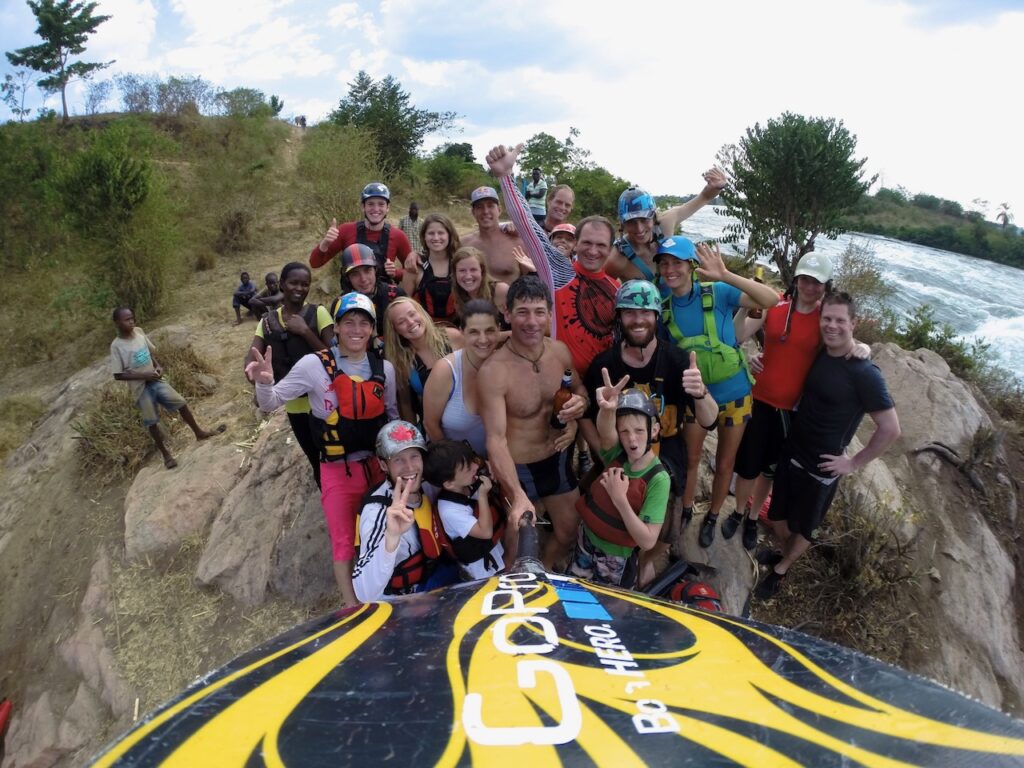
My 50th birthday party at the Nile Special Wave in Uganda with friends and family.
Having your priorities listed out gives you an easy decision-making protocol. “What do I need to do today?” The action list is easy to create- just make a list under your priority list and do that. Don’t let anything on your list be shelved by something not on your list. Of course, you’ll have plenty of distractions and emergencies over your life, but if you let them derail you, then you will always be derailed.
Working out “I don’t have time to do that today.” If it is on your priority list, NOTHING should get in the way. There are always hours or minutes here or there, and this should not be squandered time, but dedicated time. Those around you will understand, and if they don’t, they don’t have your best interests in mind and you need to fix that. People you care about who care about you should want you to be in physical shape to live longer, be stronger, and have more capacity.
It takes me 20 minutes to do 3 rounds of circuit weights at home. Or 3 rounds of callisthenics, such as pushups, dips, pull ups only takes 15 minutes or less. Running can be done from home and depends on how far you go and how fast. If my wife, Kristine walks 4 miles, it takes an hour or more, but she can do things during the walk, like talk to people, etc. Running the same loop would be much faster. Combining a 4 mile run with weights can be done under 1 hour if you can do it at home and don’t have travel time. (learning to workout at home is part of the logistical plan that assures you have time, and it doesn’t require extra steps that get in the way.)
Ready to get started?
An action list for anyone ready to kickstart the EJ longevity program. Logistical Planning-
“The difference between the amateur soldier and the professional is that the professional focuses on logistics.” Churchill.
Make a priority list of 4-6 things, in priority order to you (do it alone!) that you care most about. (Mine are Kristine, Kids, Athletics, and Business in that order). If you don’t have anything physical on your list, you may not ultimately care that much about longevity from a physical standpoint and could resign yourself to focusing on the mental side. If you want to live a long time and be capable physically you’ll need something on that list.
Make a list of things that would improve your relationships with any people listed and a list of situations that would make your other priorities more likely to succeed.
Make a list of actions that would move you towards your goals in each priority and think outside of the box to create as many mutually beneficial actions and reduce the number of mutually exclusive actions (if moving to Mexico is helpful for your business, but your spouse is priority 1 and she/he would be miserable there, you’ll want to find another solution for moving your business forward)
Turn your priorities into a mission into a purpose by committing to the long-term version of them.
Take your first step towards your ultimate goal and you’ll feel successful immediately. Know that you are not stopping and that every day you work towards your goals, you are doing what is most important to you, and even if a catastrophic event derails you at some point, you were never wasting time, you were doing something you enjoyed and are a better person for it.
Create a measurement system with milestones, with goals. “That which can be measured can be measured.”
Example for me physically- “When I compete in a World Championships, I weigh 155”. I never weigh more than 165. This is my set of bumpers to keep me in my lane with weight. The scale in the bathroom is all I need to stay in the zone.
I can run X/mile, lift X amount, Do X number of pull-ups, etc. etc..
Begin working on the plan- Know that life will deliver new information, and new opportunities, and you’ll need to adjust the plan based on new information, etc.. As long as your priorities are the same, you know how to choose what you will do each day to move you in the right direction.
Next- we’ll cover some tactics on exercise, business, and relationships. Tactics are personal and everyone has a different personality. What works for me here, won’t work for some of you. However, seeing some of the tactics I have applied, can help your mind open up to new ideas on ways to attack old problems.

Even cutting wood can be a tactic that pushes your logistical plan forward, physical, family, mental.
🙂
EJ

